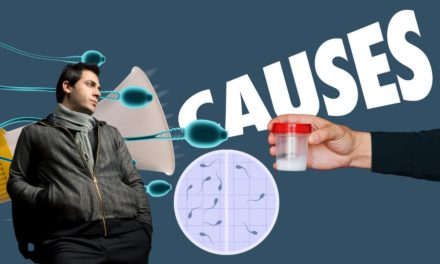Introduction
Sexual impotence, also known as sexual impotence, is a broad term that includes a variety of conditions that affect an individual’s ability to engage in satisfactory sexual activity. These conditions can significantly affect one’s emotional well-being, self-esteem, and intimate relationships. Sexual impotence can appear in both men and women and can result from physical, psychological or relational factors. In this article, we will provide a comprehensive overview of sexual dysfunction, including its possible causes, types, psychological effects, and available treatment options. By shedding light on this sensitive topic, we aim to empower individuals to recognize the symptoms, seek appropriate medical care and promote healthy sexual well-being.
Understanding Sexual Dysfunction (Sexual Dysfunction)
Sexual impotence, or sexual impotence, refers to a range of conditions that interfere with a person’s ability to experience satisfactory sexual activity. This may include difficulties with arousal, desire, orgasm, or pain during intercourse.
Common causes of impotence
- Physiological factors: Underlying health conditions, hormonal imbalances, neurological disorders, and medications can contribute to impotence.
- Psychological factors: Stress, anxiety, depression, past traumas, and negative body image can affect sexual desire and performance.
- Relevant factors: Relationship problems, communication problems, and emotional distance can affect sexual satisfaction.
Types of sexual impotence
- Erectile dysfunction (ED): ED is the inability of men to develop or maintain an erection sufficient for sexual intercourse.
- Premature ejaculation (PE): PE refers to premature ejaculation during sexual activity, causing dissatisfaction.
- Female sexual arousal disorder (FSAD): FSAD involves difficulty experiencing sexual arousal and pleasure in women.
- Female Orgasmic Disorder (FOD): FOD is the inability to achieve orgasm despite adequate sexual stimulation.
- Painful intercourse (Dyspareunia and Vaginismus): Dyspareunia is pain during intercourse in both men and women, while vaginismus is an involuntary spasm of the vaginal muscles that makes penetration painful.
Recognizing the symptoms of sexual dysfunction
Symptoms of impotence can include decreased sexual desire, difficulty getting or maintaining an erection, pain during intercourse, and an overall decrease in sexual satisfaction.
Impact on emotional well-being and relationships
Sexual impotence can have a profound psychological impact, resulting in feelings of inadequacy, hopelessness and emotional distress. It can also strain intimate relationships, affecting communication and intimacy.
Seeking medical diagnosis
If a person experiences persistent erectile dysfunction, a medical evaluation by a health care provider, urologist, or gynecologist is important. A comprehensive evaluation can help identify any underlying causes and determine appropriate treatment options.
Treatment options for impotence
- Lifestyle changes: Adopting a healthy lifestyle, including regular exercise, a balanced diet, and stress reduction, can improve overall sexual health.
- Psychological counseling: Counseling or sex therapy can address underlying psychological factors contributing to sexual dysfunction.
- Medicines: Certain medications may be prescribed to treat specific sexual disorders, such as erectile dysfunction or low libido.
- Hormone therapy: Hormone replacement therapy may be considered in cases of hormonal imbalance affecting sexual function.
- Couple therapy: For sexual dysfunction related to relationship problems, couples therapy can improve communication and intimacy.
- Pelvic floor exercises: Kegel exercises may be beneficial for people with certain sexual disorders, such as erectile dysfunction or erectile dysfunction in women.
Coping strategies and emotional support
Coping with sexual dysfunction involves open communication with your partner, seeking emotional support, and understanding that help is available. Support groups and counseling can provide a safe place to discuss concerns and feelings.
Result
Sexual impotence, or impotence, can significantly affect a person’s sexual well-being and overall quality of life. By understanding the possible causes, types, psychological effects, and available treatment options for sexual dysfunction, individuals can take proactive steps to seek appropriate medical care and promote healthy sexual relationships. Comprehensive assessments and personalized treatment plans can provide hope to those experiencing sexual challenges, fostering a positive and supportive environment throughout the journey. Together, let’s make awareness a priority, promote an open conversation about sexual health, and empower people to get the support they need to have a fulfilling and fulfilling sex life.










